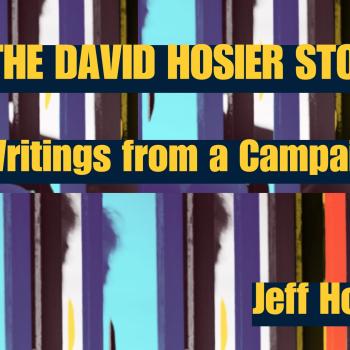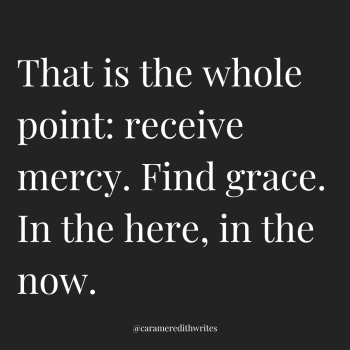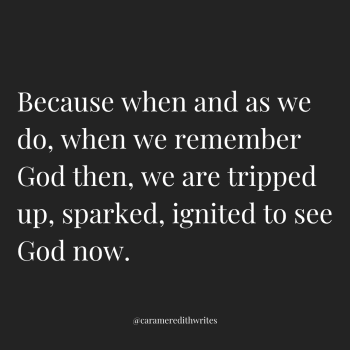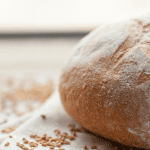It’s that time of year again: it’s time to talk about tomatoes.
A year ago, I stood in this pulpit for the first time and talked about rest, about the sabbath, about waiting on God. But I also talked about tomatoes, because even though we’d just moved from one side of Oakland to the other, I held high hopes for our scraggly, barely-survived-transportation, potted tomatoes.
Several of you came up to me afterwards: I grow tomatoes too, you said. It was like we held a secret, the secret of the power of growing something out of nothing, of tasting a tomato warmed by the sun, straight off the vine.
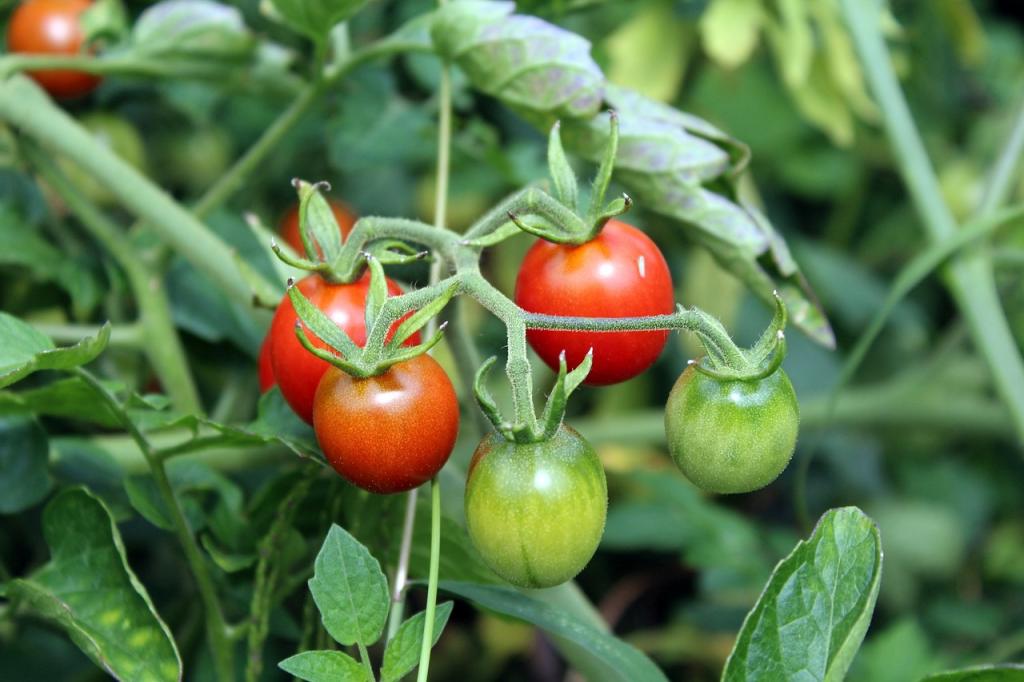
One of you, I can’t remember who, handed me a baggie of Sun Gold tomatoes a man Jack had grown himself. You who gave me the tomatoes I didn’t know I needed, for my world felt pretty underwater at the time. Sometimes I felt like I was drowning, gulping down water and gasping for air, all while trying to be a parent and a preacher, a wife and a writer, at the very same time.
Those Sun Golds from Jack were life.
Those Sun Golds from Jack were everything to me; they made me feel like I belonged, like I’d been seen, like I mattered, because somehow, just like you, I’d landed in this place.
Which brings me to the present, which continues to be that of tomatoes.
Going into this summer, I held high hopes for tomatoes. I would build raised beds, which I did. I would grow tomatoes from seed, which I did. We would yield a bounty of tomatoes, enough to make pizza sauce to last us the year. We’d have canned tomatoes; we’d make salsa, pico de gallo, caprese; we’d have sundried tomatoes, roasted tomatoes, fresh tomatoes with a sprinkle of sea salt and olive. We’d have so many tomatoes, that I too would bring dozens of baggies of Sun Golds to church; I’d pass them out by the handfuls to our neighbors.
Stop, stop, you’d say! Too many tomatoes!
No such thing, I’d reply, and I’d hand you another baggie of Sun Golds. One for the road, I’d add.
I would become the Forrest Gump of tomatoes, the preacher lady who grows backyard tomatoes by the bushelful in her backyard.
This is what would happen! This is what I’d become!
But that is not what has actually happened. It’s the second Sunday of August, and while I’ve gotten a couple platefuls of tomatoes, a couple of plants never even flowered. A couple of plants never got enough sun, so they petered out at the 11 inch mark. A few lacked nitrogen, a few were hit by disease, a few died when they were planted too close to the brassicas.
It’s been a year of trial and error. A year of seeing what works and doesn’t work in my little slice of earth. A year, one could say, of failed expectations.
It’s this last sentiment that gets me, for this sentiment of failed expectations feels so real and raw, so relevant to each of our own stories and to this week’s gospel readings.
In all four of the readings, this theme emerges. Just as Isaiah sings a love-song for his beloved, he laments the yield of wild grapes. “My beloved had a vineyard on a very fertile hill. He dug it and cleared it of stones, and planted it with choice vines.” He built a place for someone to watch over it, along with a wine vat for all that wine he’d eventually harvest from the grapes.
He did everything he was supposed to do, but still, that which was supposed to happen, that which was supposed to grow did not grow. “What more was there to do for my vineyard that I have not done in it?” He cries, he laments, he questions. “When I expected it to yield grapes, why did it yield wild grapes?”
Have you ever been in a place of questioning, in a place of cry and of lament, when what you thought would happen didn’t actually end up being the case? When what you thought would grow did not actually grow?
When marriages don’t go according to plan. When jobs don’t turn up. When children don’t become who we thought and intentioned them to become – or when children don’t become a part of our story at all, like we once thought they would.
When our bodies disintegrate, when relationships take a detour, and when the myriad stabilities of our lives come crumbling down, one ravaged brick at a time. When the world feels like it’s going to hell in a handbasket, and with every turn of the news, we feel the weight of failed expectations.
Sometimes, failed expectations feel like the story of our lives.
In Isaiah, the vineyard is representative of God, of course, of “the LORD of hosts [who] is the house of Israel, and the people of Judah [who] are God’s pleasant planting.” The story is a story of the God who kept chasing, keeps chasing, and will continue to chase God’s beloved children – who continues to chase us.
This story too is the story of our lives.
The theme continues in Psalm 80 with the end plea, “Restore us, O LORD God of hosts; let your face shine, that we may be saved.” The people and the vineyards, the land and the animals, restore them all, according to your expectations. We see this in Luke 12, when Jesus’ words are not what we expect them to be: Jesus came to bring fire to the earth, and how he wishes it were already kindled? He’s come to bring division, not peace, to earth, and then calls his followers hypocrites because they do not know how to interpret the present moment of who he really is and not who he’s not?
But it’s the passage in Hebrews that really solidifies the theme. In this gorgeous passage, we’re reminded of faith: by faith the people passed through the Red Sea, as if it were dry land. By faith, the walls of Jericho fell. By faith, Rahab, who was a prostitute, didn’t die. By faith, by faith, by faith …because in all of these examples of people in the Bible, “…though they were commended for their faith, [they] did not receive what was promised, since God had provided something better so that they would not, apart from us, be made perfect.”
They did not receive what was promised because God had something better in mind.
Sometimes, that which we perceive as failed expectations, is not actually failure. Instead, it’s a promise of the “something better,” of something else God has in store.
This becomes the promise.
This becomes the truth.
This becomes what we get to grasp and hold onto when all we can give is a single baggie of tomatoes to Jack, instead of to every person in this room, as we so dreamed of doing.
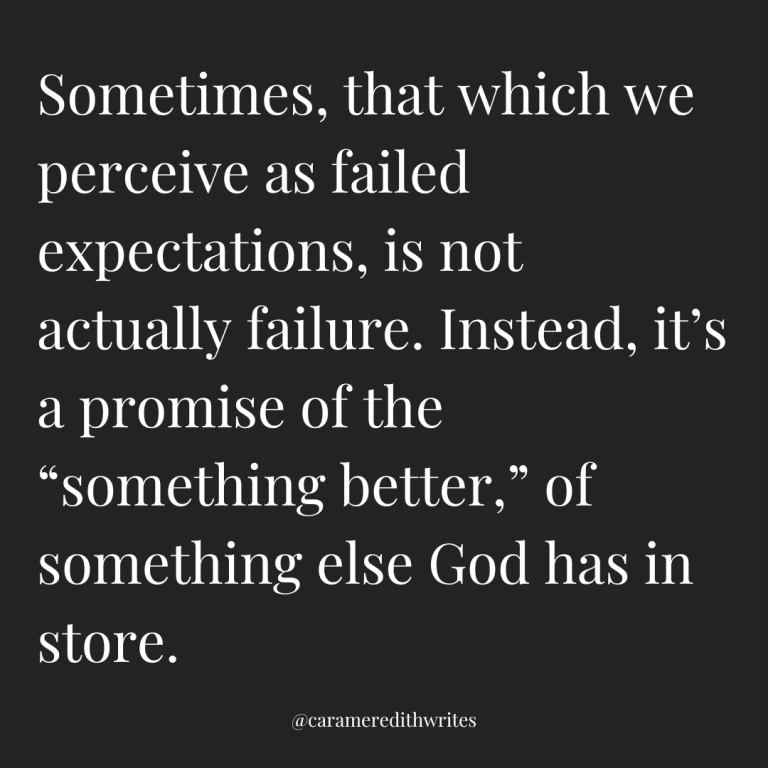
God is still up to something. God is still here. God is still with us in the midst of the pain of that which could not be, that which didn’t happen, that which causes us to mourn.
God is here, in this place, with us.
“Behold, God, beholding you and smiling,” Anthony DeMello once said. So this is what we hold onto, believing that God’s still got something up that big ol’ God sleeve. God’s got more in store.
Might we cling to this truth, over and over again.
Amen.
—
This is a sermon preached on August 14, 2022 at St. Paul’s Episcopal Church in San Rafael, California. Behold God beholding you and smiling!








